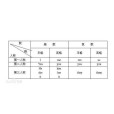基本介紹
- 中文名:賓格
- 外文名:accusative case/objective case/casus accusativus
- 拼音:bīn gé
代詞的賓格,混同,名詞的賓格,
代詞的賓格
主格 | 賓格 |
I | me |
you | you |
he | him |
she | her |
we | us |
they | them |
主格要放在主語位置,賓格要放在賓語位置。主語位置都知道,一般在句首,如:
I am a teacher.
在英語中,賓語有兩個位置,一個在動詞後跟賓語,注意不是所有的動詞都需要跟賓語。另一個在介詞後跟賓語,如:
I give him a book.
這裡的give是動詞,him是give的賓語(賓語的作用是使謂語所表達的意思完整和清楚),因為him的位置是賓語,所以,如果在這個位置上用的是人稱代詞,就得用賓格,而不能主格的he.
She speaks to me.
這裡的to是介詞,它後面的me在英語語法中稱賓語,因此也要用賓格。
混同
在實際運用中,主格和賓格代詞有時會混淆。下面是常見的問題:
1.在複合結構里,人稱代詞的主格和賓格在單獨使用時,沒有問題,如很少人會犯下這樣的錯誤:
*(1)Wilcox spoke to I.
*(2)Her knew what had happened.
但在複合結構中,錯誤就難免了,如:
*(3)Wilcox spoke to my friend and I.
*(4)He and her knew what had happened.
*(5)This is between you and he.
這種錯誤是可避免的。
第一,在有介詞的複合結構中,特別要注意,第二個人稱代詞,必須用賓語,如:
for you and me
between Maria and him
第二,試把複合結構中的另一部分暫時用括弧圍起來,那么該用的格就容易辨別了,如:
(6)This message is for (My father and) I or me.
(7)(Marry and) he or him went downtown together.
顯然的,(6)里的代詞是賓格的"me", (7)里的代詞是主格的"he"。
2..在比較結構里,連線詞"as"或"than"後面,按理用主格式,但在口語中,人們常用賓格形式,學美式英語者,更是如此:
(8)a. You did as well as she. b. You did as well as her.
(9)a. I am older than he. b. I am older than him.
(a)和(b)兩種說法,都可接受。但如果"as"和"than"後頭分句的主語和動詞都要完整出現的話,這時的人稱代詞,就必須是主格,如下:
(10)You did as well as she did.
(11)I am older than he is .
此外,還有一點要注意,就是"as"和"than"後面雖然在語法上用主格好,用賓格也可,但是有時意思會有所不同。試比較(a)和(b):
(12)a. Jason praised Maria more highly than I. b. Jason praised Maria more highly than me.
(13)a. Jason praised Maria more highly than I did (= I praised Maria). b. Jason praised Maria more highly than he praised me.
(12)a和b都被接受,但(12)a等於(13)a,而(12)b等於(13)B: 顯然,這兩句的深層意思大有差別。遇到這種情形,為了避免誤解,不妨根據要表達的意思用完整的句式表達出來。換句話說,必要的話,要用(13)這句子。 不然,把(13)a變成(14), (13)b變成(15)也可:
(14)I did not praise Maria as highly as Jason did.
(15)Jason did not praise me as highly as he praised Maria.
名詞的賓格
現代英語中名詞是沒有賓格可言的,但英語從法語、西班牙語、義大利語中吸收了很多名詞和形容詞,這些名詞和形容詞往往就源自拉丁語的賓格。一些後綴就源於賓格:
- | 拉丁語主格 | 拉丁語賓格 | 英語後綴 | 衍生 | 參考資料 |
nt系 | -ans | -antem | -ant | -ance | |
-ens | -entem | -ent | -ence | ||
-escens | -escentem | -escent | -escence | ||
ion系 | -io | -ionem | -ion | - | |
-atio | -ationem | -ation | - | ||
-itio | -itionem | -ition | - | ||
-sio | -sionem | -sion | - | ||
-izatio | -izationem | -ization | - | ||
-ficatio | -ficationem | -fication | - | ||
ty系 | -tas | -tatem | -ty | - | |
-itas | -itatem | -ity | - | ||
-ivitas | -ivitatem | -ivity | - | ||
-etas | -etatem | -ety | - |
另外,英語從拉丁語中吸收了一些說法,下面短語中第二個詞就是賓格:
原文 | 英文字面直譯 | 含義 |
ad hominem | to a man | 訴諸人身 |
ad libitum | at one's pleasure | 隨意 |
ad nauseam | to sickness | 到了令人作嘔的程度 |
ad valorem | to the value | 照價 |
per annum | by the year | 每年 |
per diem | by the day | 每日 |
post meridiem | after noon | 午後 |

